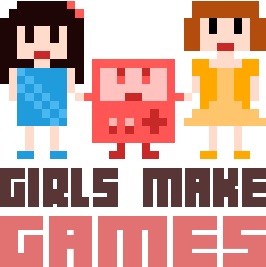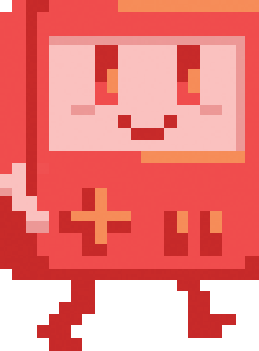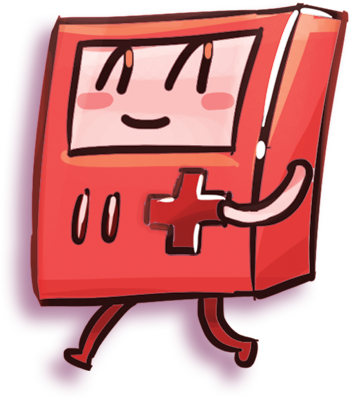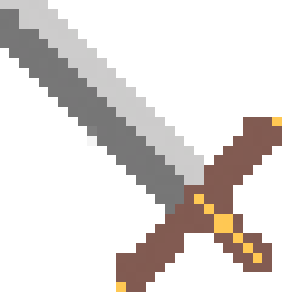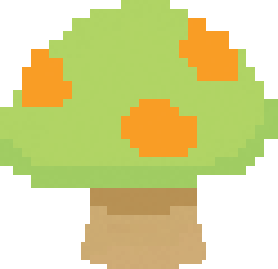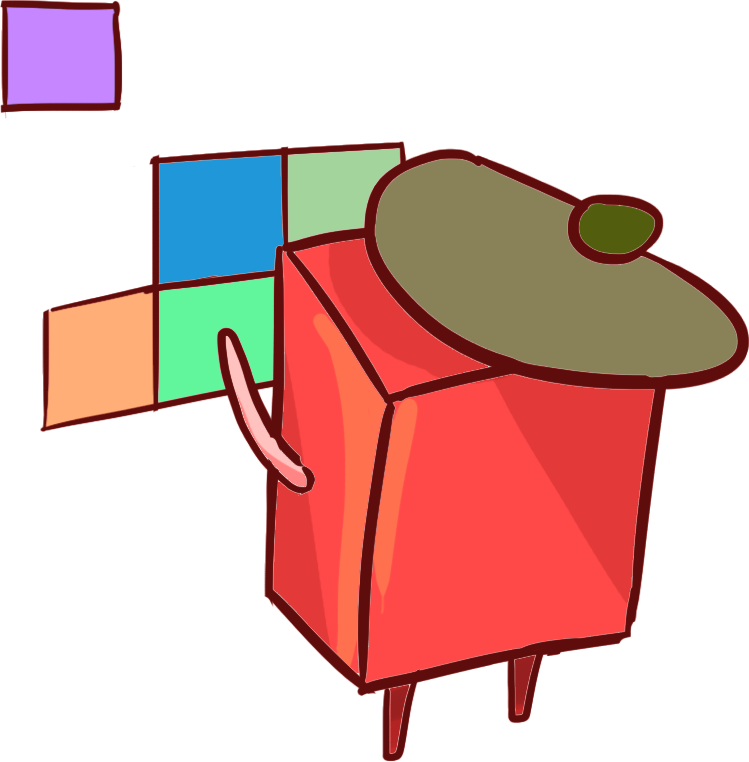Game Dev 101
This section is designed like a brainstorming activity. You’ll get a good overview of what the game development process entails, but to get the most out of it we encourage you to answer prompts outlined in the ‘Creative Activity’ below. With this structure you’ll have a much easier time coming up with a game of your own!
What are Games?
Games are fun activities that we play! They challenge us and make us cooperate and compete to reach the goal. Some games you play to get the highest score, while others you play to experience a story.
Types of Games
Games come in all sorts of dimensions and genres. The genre of a game describes the experience of playing it.
What kind of Games do you like to play?
Dimensions
Genres
Game Development Roles
Every game project has writing, art, programming, sound and design. If the game is being made by a group of people, or a team, the work will be split up!
Some of the professional roles in game development are: Writer, Designer, Programmer, Artist, Musician and QA Tester. Each job is super important to making the game fun!
The Writer plots out a compelling story and gives characters exciting and emotional words to say. She is in charge of dialogue, naming characters, fixing plot-holes, and more.
The Musician composes the musical themes and creates sound effects.
The Artist draws colorful environments, characters, and costumes. They then animate the characters to bring it to life.
The Programmer writes code and connects together all the work of the team.
The Designer creates challenging levels and puzzles for the players to solve.
The Tester tries to play the game in unconventional ways, double checking to make sure everything is working as intended.
The Development Process
Planning (AKA Pre-Production):
Brainstorming for unique game ideas. This is when you, the game developer decides on the characters and the story that will take place in your game.
Production
Once you have an idea of what your game is going to be about, go into production mode and start creating!
Testing: QA (Quality Assurance):
Teams play test games to find and squash bugs, which are unintentional errors!
Publishing
The Publishing team packages your game for retail and digital stores, making sure to market and advertise so that more people hear about it!
Creative Activity
Which area of game development are you interested in? Explore the different areas through these exercises.
Writing:
What is the journey that the Heroine will go on? Does the world in your story have a history?
Art:
Draw a sketch of the characters and world of the game.
Design:
What skills or powers will your character have. How can the player use these abilities to overcome the enemies?
Programming:
Write the rules to the game in a clear fashion. Will a computer understand your rules?
Music/Sound:
Grab a microphone and record some real sound effects!
What Makes a Game?
Let's break down a game into its atomic parts. Each game needs:
Rules
Goals
Player (Hero/Heroine)
Obstacles/Enemies
For Example:
Rule: RED jumps when Space is pressed.
Rule: RED can shoot sparkles.
Goal: Collect all the coins.
Goal: Open the Locked Door.
Heroine: RED is the player-controlled character.
Obstacles: The level has difficult jumps.
Enemy: Robot Cats
